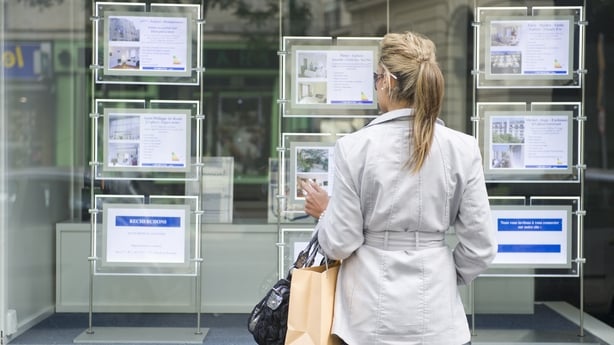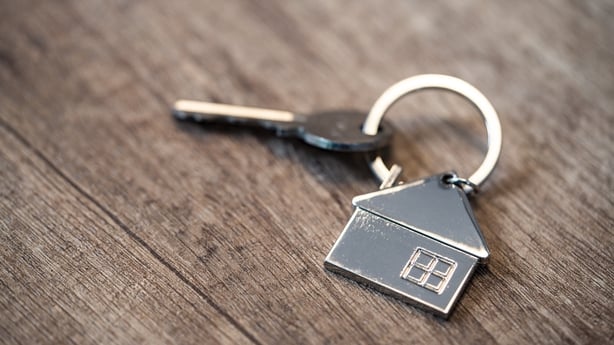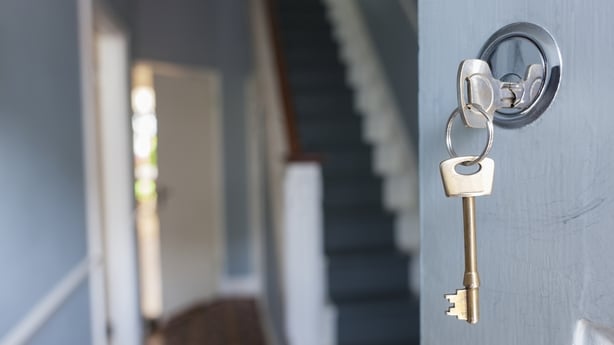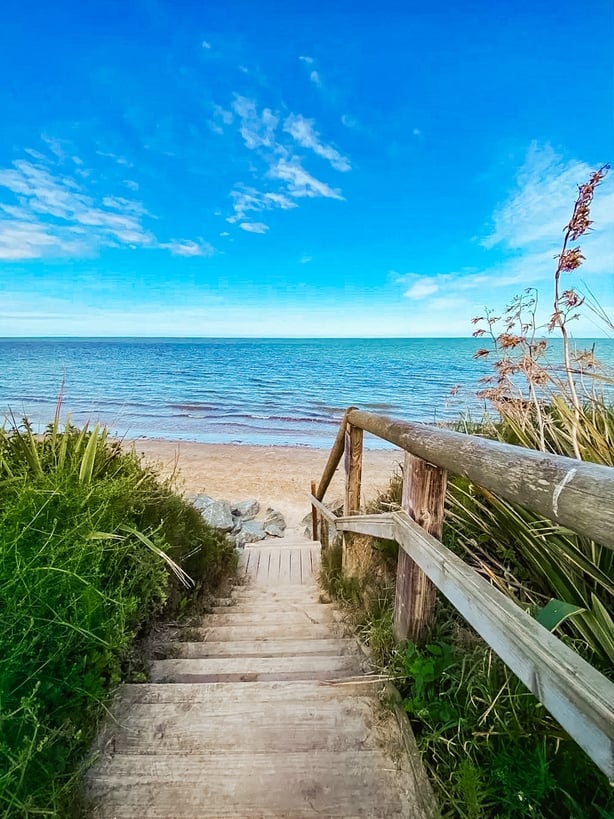Buying a house in Ireland has never been so difficult for so many. Tara Povey, a travel and lifestyle blogger, writes about her journey to owning her own home and the many hurdles, both expected and unexpected, she encountered.
As a full-time travel blogger, I was always on the move. My life only had shallow roots so it was easy to leave it all behind for the next trip. Then the pandemic came and changed everything. It effectively destroyed my income and forced me to sit still.
The upside of this unprecedented event was that I discovered a need for change. In the unprecedented chaos of a global pandemic, I craved stability. So I started a new journey toward home ownership.
We need your consent to load this Instagram contentWe use Instagram to manage extra content that can set cookies on your device and collect data about your activity. Please review their details and accept them to load the content.Manage Preferences
The decision to own a home
When I first decided to buy it was the very beginning of the pandemic when prices were more reasonable than they are now. There was a sort of short-lived panic, suddenly people were selling off holiday homes around the country because the future was uncertain due to Covid. I was hopeful that I could find my perfect house, near my family and friends in Dublin, without breaking the bank.
However, over the two years of the pandemic, I watched the house prices in Ireland soar due to increased demand and lack of supply. According to the Central Statistics Office house prices increased by just over 15% from March 2021 to March 2022. It was devastating to see the prices go up and the supply dwindle as I constantly refreshed websites like MyHome and Daft.
Fortunately, my original career choice of Pharmacist was in high demand. I had kept my qualifications up to date by doing short stints in pharmacies over the years, so I decided to jump back in.
The plan was to buy with my boyfriend, as having two incomes was an advantage that would undoubtedly make the journey easier, one which many people do not have. However, as he had been based in the UK and was a sole trader, we soon discovered that he was ineligible for a mortgage in Ireland until he had three years of Irish accounts. Accepting that I would have to buy alone was a hard pill to swallow.

Luck and circumstance
Thankfully, I was able to live at home while I saved my deposit for just over two years. My mam gave me a huge advantage by letting me move back home for those couple of years.
Thanks to my role as an essential worker, the pandemic turned out to be a great time to save for me personally because my income was steady and my outgoings costs were unusually low. Despite all these strokes of luck, I knew that if I was buying alone in Ireland, I would need to make more money.
I started working extra shifts as a locum pharmacist, but these shifts are notoriously unreliable so I found myself a role as a supervising pharmacist in a late-night pharmacy instead. The 12-hour shifts meant I could work three days and earn a full-time wage. Plus it left me with four days free a week to take locum shifts and blog at the same time.
Learning to be a homeowner
Originally, I had no clue about how to buy a house, so had to educate myself. I spoke to friends and family who had bought a house in the past decade and got advice. They recommended setting up a direct debit for saving and they warned me that I'd need at least €5,000 extra in my account to cover things like stamp duty and solicitors fees. Mainly they explained the step-by-step process of all the hoops I would have to jump through because I was completely clueless in the beginning.
I also started following home/mortgage accounts on social media. The Instagram account @crazyhouseprices, run by Ciarán Mulqueen, was an invaluable resource for me thanks to its free tips - perfect for a first-time buyer needing clarity.
We need your consent to load this Instagram contentWe use Instagram to manage extra content that can set cookies on your device and collect data about your activity. Please review their details and accept them to load the content.Manage Preferences
Towards the end of 2021, after many months of straight work and not much else, I had enough of a deposit saved and decided to find a broker. You don’t have to use a broker but I wanted someone to guide me through the complicated process.
Originally I hoped to get the 4.5 exception that many of my friends had availed of in previous years. However, after talking to my broker I had the sinking feeling that was unlikely.
At the time when I was buying, the Central Bank guidelines dictated that a mortgage should only be 3.5 times your annual salary. However, banks could choose to go outside the guidelines and offer up to 4.5 times the annual salary, this is what they call an exception or exemption.
They can only offer it to up to 20% of their first-time buyer mortgage clients and it's based on a set of criteria including repayment capacity. They’re more likely to be given early in the year when they have a clean slate, the later in the year the fewer exemptions/exceptions they have left to give.
Unfortunately for me, when I was getting my initial mortgage offer it was toward the end of 2021 and the bank didn’t even want to discuss an exception.
Realising that a bank would only lend me 3.5 times my salary was tough. It dawned on me that I’d need to earn €100,000 and have a deposit of at least €50,000 to get anything suitable in Dublin – a tall ask for even a well-earning couple, never mind one person.

Questioning the bottom line
At this point, I began to question my bottom line. Like many trying to buy a home in Ireland, my journey became about compromise. So, my first question was, 'why Dublin?' Sure, my family and friends are there, but Dublin isn't the be-all and end-all of Ireland.
After some reflection, I decided to look South to a county I had a connection with. Co. Wexford. I’d spent months in Wexford working in a friend’s pharmacy a few years ago, I had friends there so I wouldn’t be isolated, and best of all, I loved living by the sea.
Before I looked at properties I wanted to get approval in principle from the bank. The broker gave me a list of documents to provide: bank statements; Revolut statements; proof of employment; payslips, etc. It felt endless.
View, view, and view some more
On top of that, the viewing process was a new, overwhelming world. Just because I was looking outside of Dublin didn’t mean there was less competition. Every house I viewed went above the asking price. Surprisingly, the more houses I viewed the more I changed my mind.
Originally I wanted a cottage in the middle of nowhere. In the end, I fell in love with a semi-detached house in a coastal estate. For this reason, I recommend viewing lots of houses (though in this market, it’s basically inevitable), you might be surprised by what you like.

I found the estate agent made a big difference in the viewing and buying process. Certain agents were less friendly and asked why I was angling for a house in Wexford. It was clear they would’ve preferred me to be local rather than some blow-in from Dublin.
I stopped looking at houses sold by one agent because they made me feel small. To me it was a life-changing decision and I didn’t want to deal with someone who wasn’t sensitive to that.
It was hard not to lose hope when every viewing became a bidding war. The disappointment was unreal, and before long it started to take a toll on my body. I ended up with a case of stress-induced psoriasis on my scalp.
Eventually, after all the stress and confusion, I found my house.
A celebration... of sorts
I still had to contend with other buyers but finally my offer was accepted. I still didn’t celebrate. I was afraid that the sale might fall through and I’d be back to square one, having been disappointed so many times in this journey. Once I went "sale agreed" it was more paperwork, home insurance, final documents, and closing the sale.
However, out of nowhere, my broker said the bank wouldn’t give me a mortgage because the house was over an hour drive from my job. My heart sank. I’d never heard of this rule. After a lot of stress and panic, I got my employer to sign a letter saying that I’d be able to maintain my income and spend the majority of my time in Wexford.
Despite my brokers' concerns, my bank approved my mortgage. Closing the sale and getting the keys took about seven weeks. Having the keys in my hand was surreal. Buying a house by myself, with no gift from my parents, in the current environment felt like a huge achievement. I finally celebrated by getting the standard "sold" photo outside my new home.

Hidden costs and concerns
I had a stroke of luck when the sellers decided to leave their furniture. This was a massive help as my bank account was pretty empty after paying out my deposit, solicitors fees, stamp duty, and survey costs.
Some of my new neighbours asked questions about why I bought in Wexford. They’re curious, but I don’t think there’s any bad intent. The only place I’ve encountered animosity was when I uploaded a TikTok about buying in Wexford. It got over 160,000 views and I received a few comments along the lines of "this is why locals can’t buy in Wexford".
We need your consent to load this tiktok contentWe use tiktok to manage extra content that can set cookies on your device and collect data about your activity. Please review their details and accept them to load the content.Manage Preferences
I don't understand that thought process. I can understand a certain amount of frustration with people buying holiday homes, meaning that there's less supply for locals and the house is barely being used. However, I don’t see how anyone could begrudge someone a home when the plan is to live there permanently because they’ve been priced out of the area they grew up in.
I couldn’t buy in Dublin because of the skyrocketing prices. What am I supposed to do, not buy at all? I won’t accept someone shaming me for buying in Wexford.
Thankfully, the majority of comments on that video were positive. Most people recognised that people are priced out of their hometowns by the government, not individuals.

Was it worth it?
This home-buying journey has been my biggest adventure yet and, despite the many nights of stress and worry, was ultimately worth the many ups and downs. It's amazing to have a base of my own that I can depend on. It gives me a sense of stability that I didn’t even know I was missing.
However, it also opened my eyes to the harsh reality of trying to buy in Ireland. I was lucky to have a decent job, lots of support, and the ability to move to a different county, but that is not the case for everyone.
Half of my friends and family have moved to the UK, Canada, and Australia in recent years to find a better cost of living and way of life. The ones who did buy in Ireland have moved out of Dublin or bought a shell that needed complete refurbishment which they did themselves to save money.
The house-buying process, though stressful, worked out for me. Others have had their hopes dashed time and time again and have eventually given up.
The Central Bank recently announced an increase of mortgage loan amounts to four times the annual salary. However, with skyrocketing interest rates, a larger loan means even higher monthly repayments, and when you combine that with the already astronomical cost of living things start to seem almost impossible.
Ultimately, for some, buying in Ireland is a possiblity but, for most, compromise is unavoidable.
The views expressed here are those of the author and do not represent or reflect the views.
